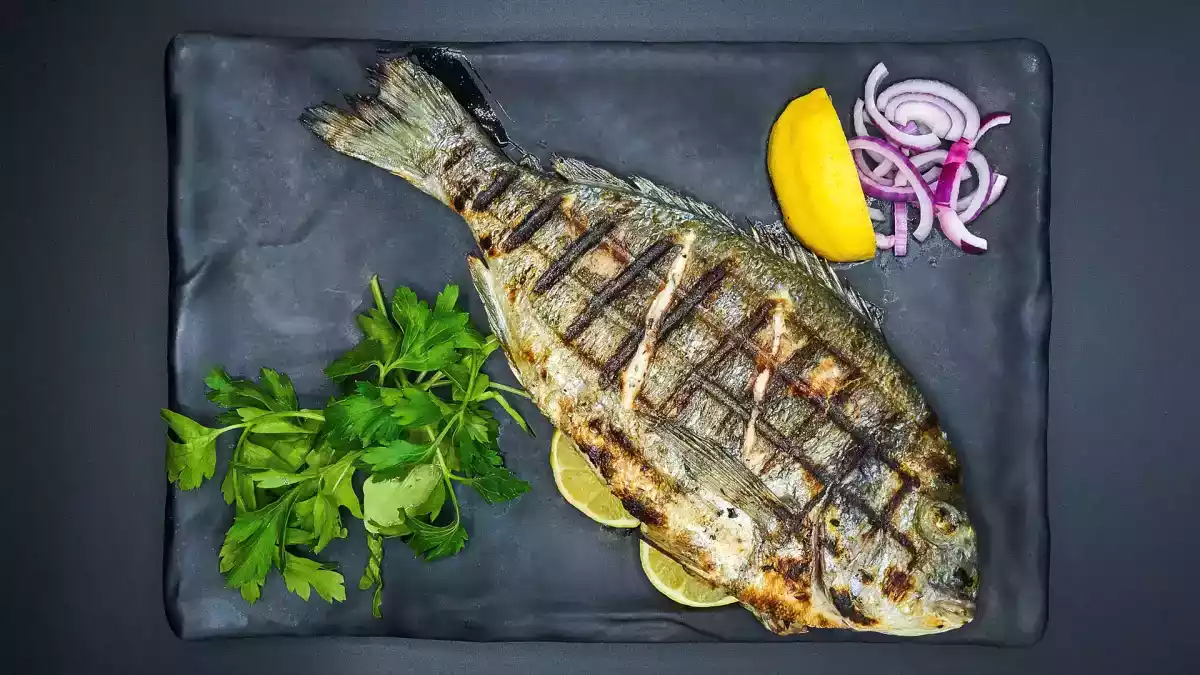Fish on the barbecue: how to avoid sticking to the grill

Grilled fish is one of the great pleasures of summer. It is tasty, light and perfect for those looking for healthy options on the barbecue. However, many avoid it for fear that it will stick to the grill, fall apart when flipped or lose its juiciness.
The good news is that, with a few easy-to-apply tips, you can prepare barbecued fish without hassle. You just need to understand a few basic cooking principles to prevent sticking and get that characteristic smoky flavor that justifies lighting the coals.
Preheat the grill well and do not rush.
A medium-heat grill is the worst scenario for fish. Because of its low connective tissue content and more delicate protein structure than red meat, it needs a very hot surface to seal it quickly. If the grate is not very hot, the proteins in the fish can form bonds with the metal, which encourages sticking. Therefore, the first thing to do is to preheat the grill well, without the fish on top, for at least 10-15 minutes. Let it even smoke slightly. Only then will it be ready.
Grease the fish, not just the grill.
The fish needs a protective film. You can lightly oil the grill, yes, but it is most effective to apply a thin layer of oil directly on the fish. This helps reduce sticking, improves heat transfer and promotes even cooking. The oil also acts as a barrier against surface moisture loss. It is advisable to brush just before putting it on the fire, not long before, to avoid oxidation or softening of the surface.
Choose the right type and cut of fish.
Not all fish behave in the same way when exposed to direct heat. Fatty fish with firm flesh, such as tuna, mackerel, salmon or even whole sea bass, tolerate grilling better. If you use fillets, choose pieces at least 1.3 inches/3.5 centimeters thick. Thinner pieces cook too quickly and tend to break when handled. Whenever possible, cook the fish whole: the skin, the central bone and the head help to conserve moisture and provide more flavor.
Do not move the fish until it is ready
One of the most common mistakes is to turn the fish prematurely. At first it sticks, but as the protein coagulates and the surface browns, the contact weakens. When the fish is ready to turn over, it practically peels off on its own. If it resists, wait a little longer. In the case of fish with skin, you can start with the skin side up in the case of loins, although the most common and recommended for grilling is to place the skin side down to protect the meat. Both options are valid depending on the thickness and cut.
Use utensils that make your life easier
If you are going to cook a whole fish, a fish roasting basket is your best ally. It allows you to turn the piece without handling it directly and without fear of breaking it. Also useful are stainless steel perforated trays, which allow the heat to pass through without the fish being in direct contact with the grates. Avoid using baking paper: it is not designed to withstand temperatures above 430°F/220ºC and can burn. The important thing is to avoid unnecessary handling that compromises the integrity of the product.
Controls the cooking point
Fish does not admit distractions. It has a very narrow cooking window due to its lower amount of collagen. The ideal is to sear it well on one side, seal its surface, and then turn it only once to finish on the other side. If you have a cooking thermometer, look for an internal temperature of 122-125°F / 50-52ºC for a juicy result. If not, look at the meat: it should become opaque at the edges and maintain a pearly or slightly shiny point in the center. Overcooking causes loss of water, dry texture and loss of volatile aromas.
Dry, temper and season in the correct order.
Do not put fish directly from the refrigerator to the grill. The thermal contrast causes contractions and can affect cooking. Allow it to cool for a few minutes beforehand. Dry it well with kitchen paper to avoid excess surface moisture, which favors adhesion. And season with salt and pepper after greasing, not before, to prevent the salt from extracting water before cooking. Every gesture affects the final result.
How about you?
Do you dare to cook fish on the barbecue or do you prefer to leave it for the frying pan? Do you have any infallible trick to keep it from sticking? Do you use any particular gadget or do you go straight to the grill? Tell us how you do it, what fish you usually prepare and what has been your greatest success (or your worst disaster) on the grill.
 Patricia González
Patricia González
Comments